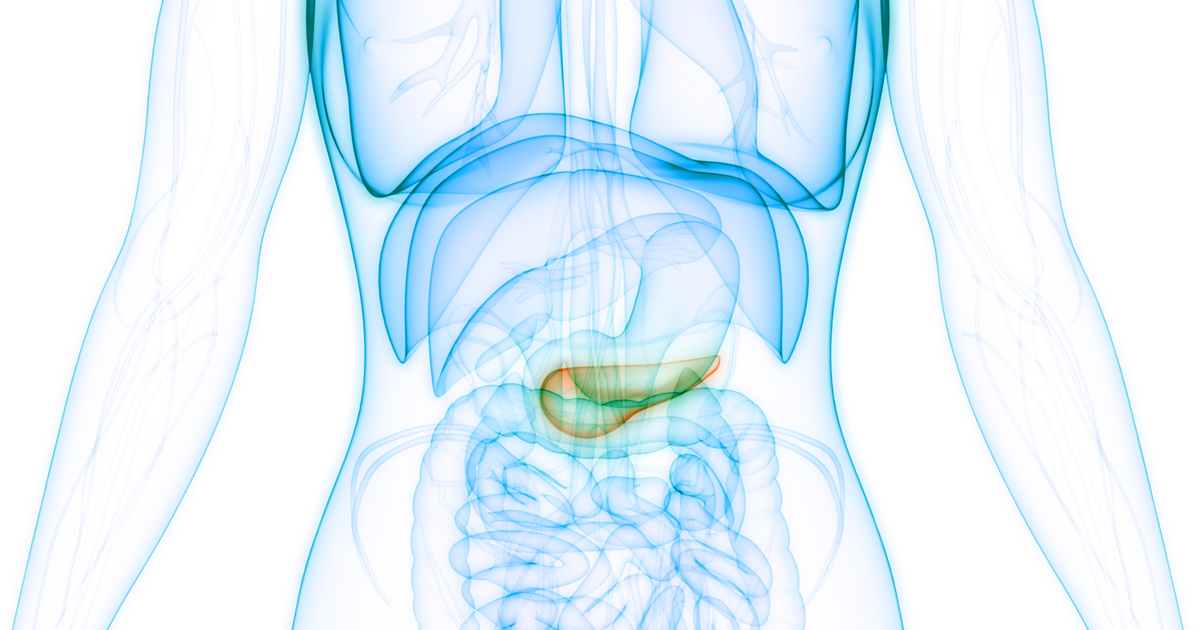Pancreatitis: What is it? Can it turn into pancreatic cancer?

The pancreas connects to the small intestine and is located in the upper abdomen. It drains digestive enzymes into the small intestine to break down carbohydrates, proteins and fats. It also produces hormones and releases them into the blood.
Chronic pancreatitis occurs when there is ongoing, long-term inflammation in the pancreas. When the pancreas is occasionally inflamed, a person may experience a short-term, sudden bout of inflammation that may or may not cause symptoms. This type of acute episode doesn't always turn into a chronic condition, but sometimes reoccurring episodes can.
Pancreatitis symptoms
Acute pancreatitis episodes may include:
- Upper abdominal pain that may spread to your back or chest
- Pain comes on suddenly, builds up over a few days or worsens when eating
- Nausea or vomiting
- Fever or feeling sore or tender in your upper belly
Those with chronic pancreatitis may not always experience symptoms, but signs may include:
- Constant, abdominal pain that spreads around to the back
- Oily stools
Pancreatitis treatment
Pancreatitis is treated with supportive care. Acute pancreatitis can be treated, with most people recovering after a few days. Pain management, bowel rest (clear liquid diet) and addressing any gall stones may be necessary. If you have chronic pancreatitis, lifelong management is required to avoid other secondary complications.
Can pancreatitis turn into pancreatic cancer?
"Chronic pancreatitis increases the risk two-fold compared to the general population," says Mridula Krishnan, MBBS, Nebraska Medicine oncologist and hematologist. "But a very small number, only 1% to 2%, of pancreatic cancer incidence is secondary chronic pancreatitis."
Other risk factors for pancreatic cancer:
- Smoking
- Obesity
- Inherited genetics or gene mutation
- Type 2 diabetes
"Often, we see inflammation or scarring of the pancreas from a CT scan initiated for some other reason. Because a patient may not always have symptoms, paired with the lack of helpful screening tools, pancreatic cancer is often not detected until the later stages."
Are there signs of pancreatic cancer?
Unfortunately, early pancreatic cancer does not cause noticeable symptoms. Even the following symptoms may be due to other conditions. Even so, get checked by your doctor if you experience:
- Jaundice (yellowing of the eyes)
- Dark urine
- Light-colored or greasy stools
- Unexpected weight loss
At what point should someone see a doctor?
If you have pancreatitis symptoms, set up an appointment with your doctor. They will be able to help identify the cause of your symptoms and narrow down what may be going on. If you don't have a primary care doctor right now, you can establish care with one our primary care doctors by calling 800.922.0000.
"Rest assured that if you have a pancreatitis episode, it's unlikely to be cancer," says Dr. Krishnan. "Talking with your doctor about your symptoms and working out a treatment plan will help to put your mind at ease."




